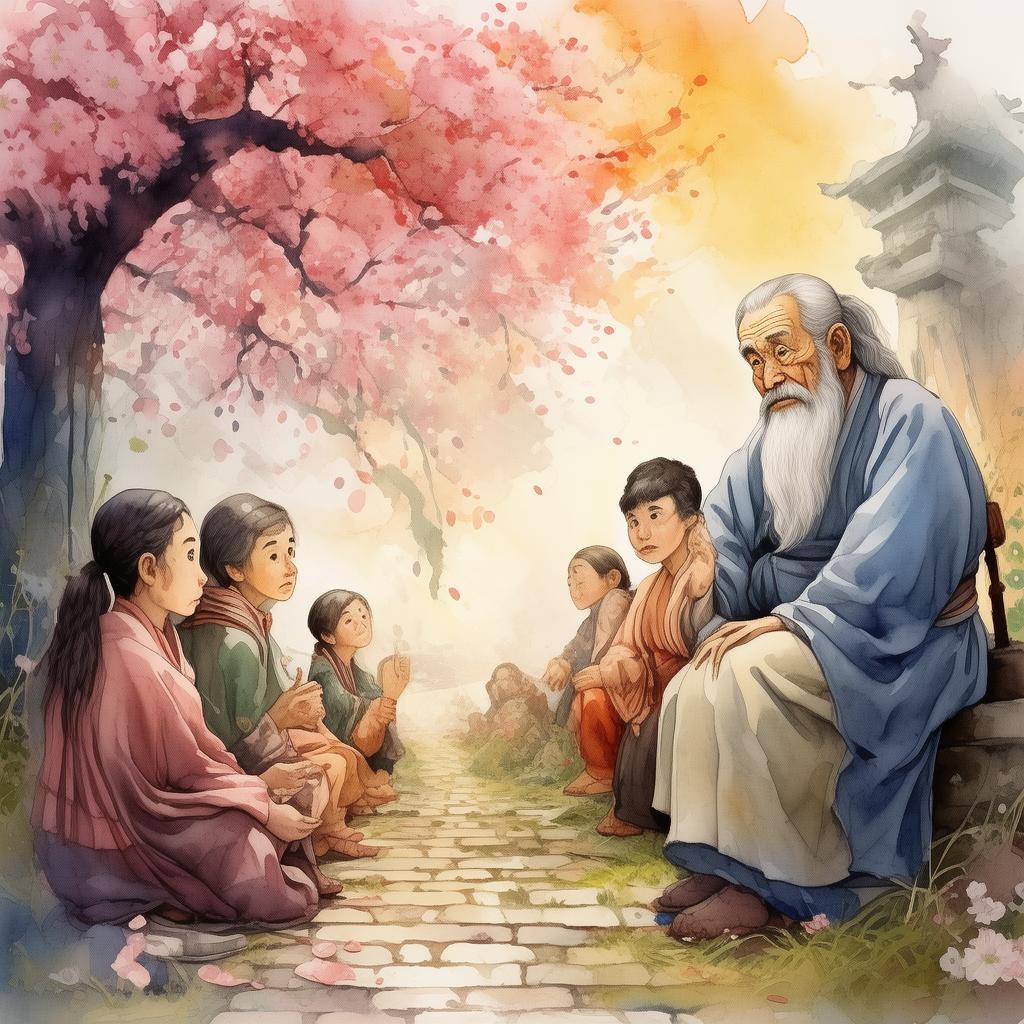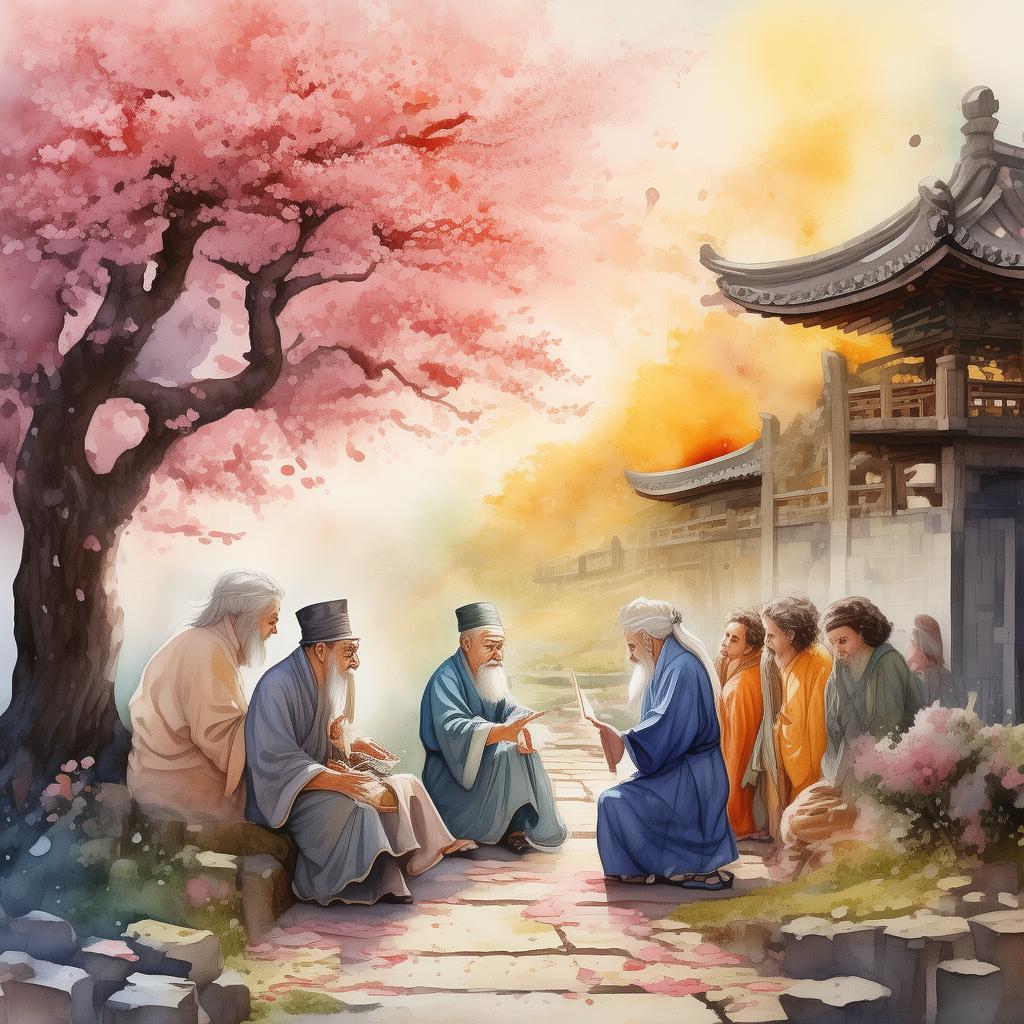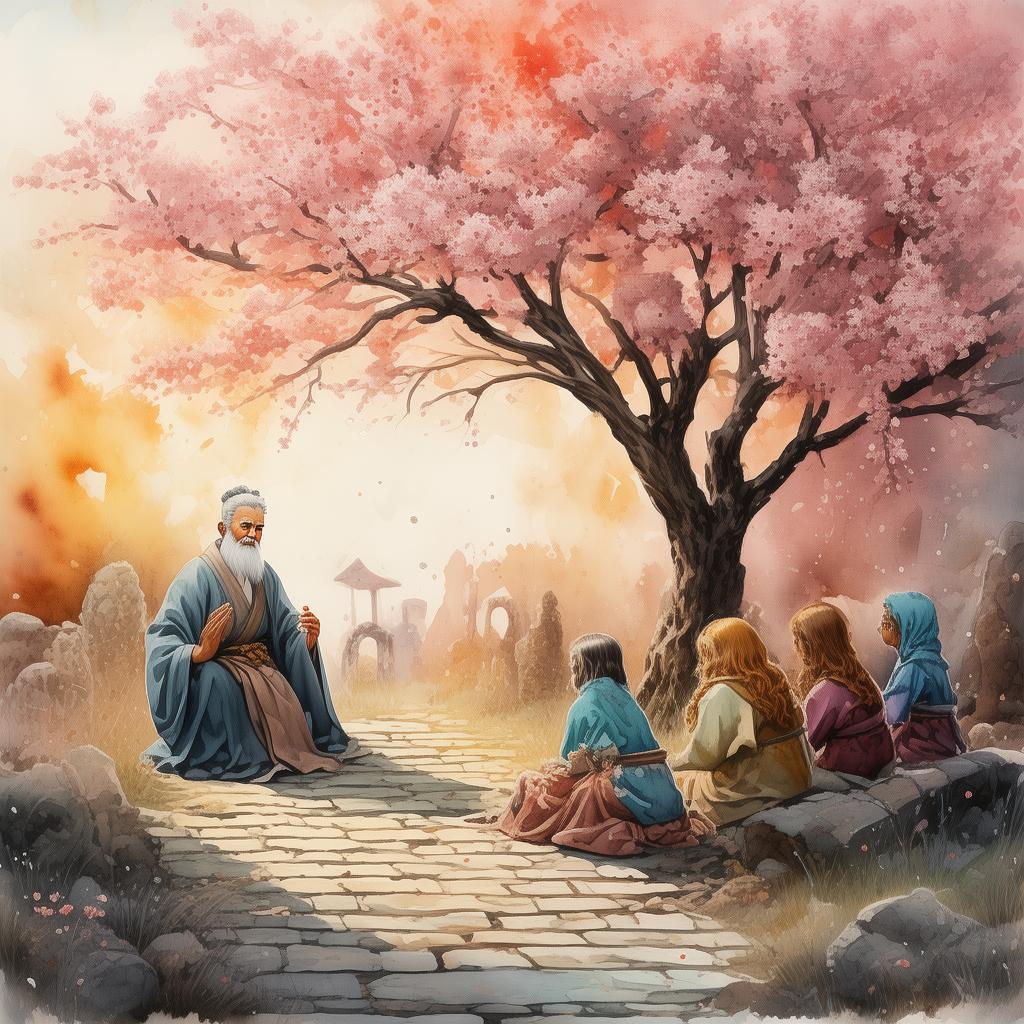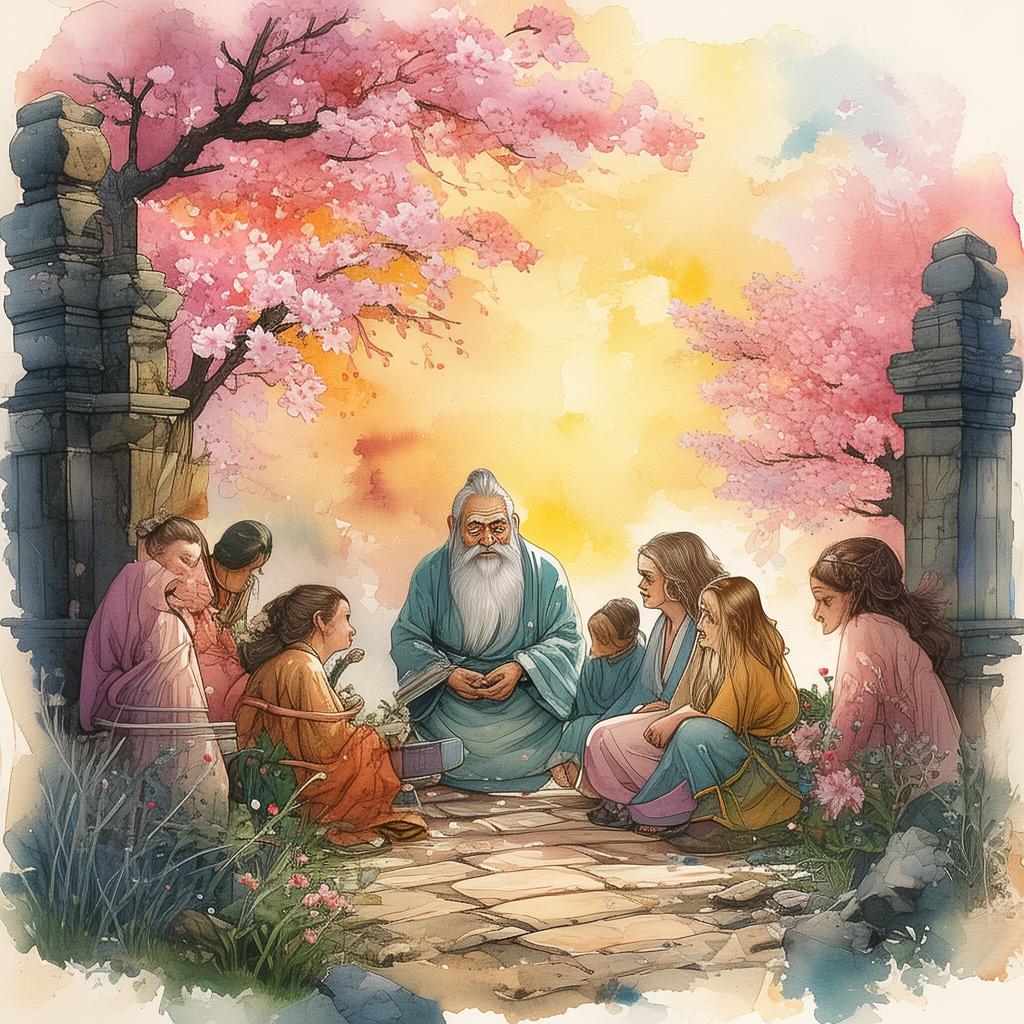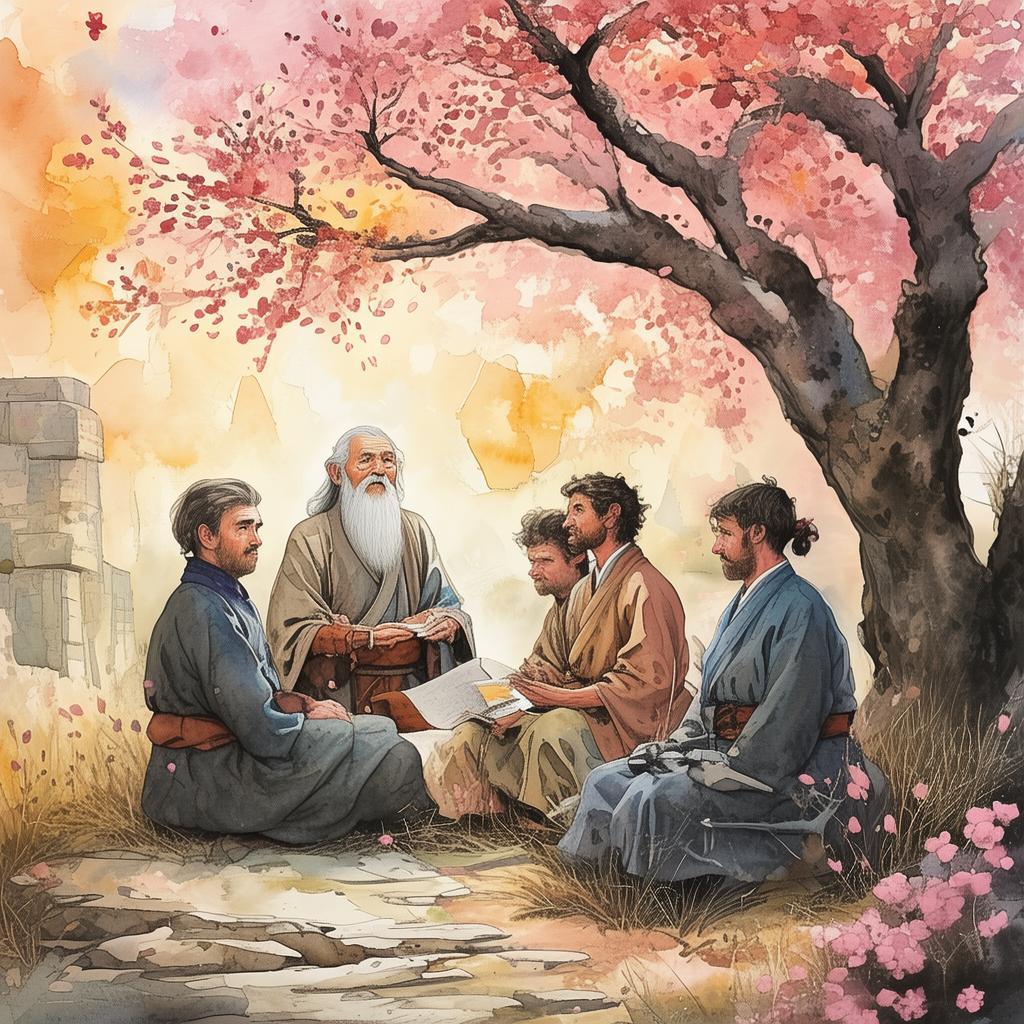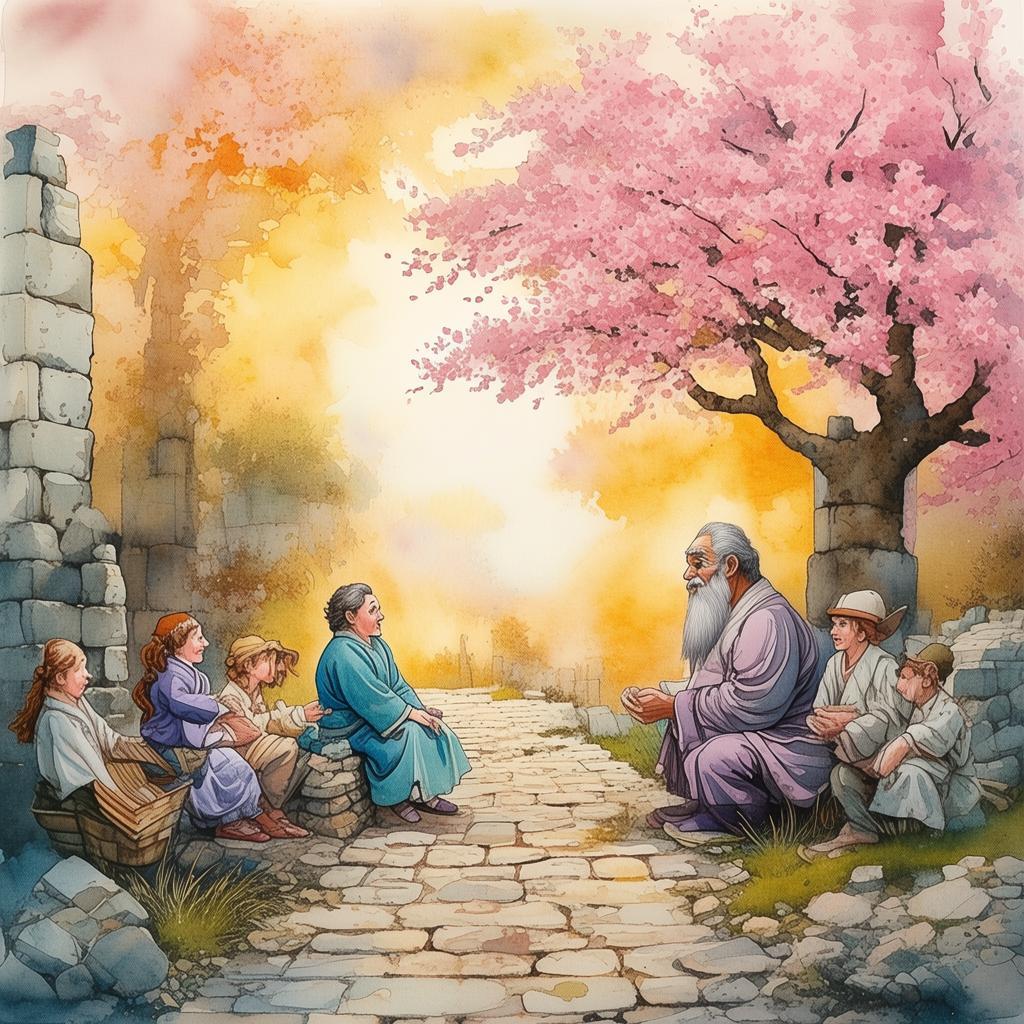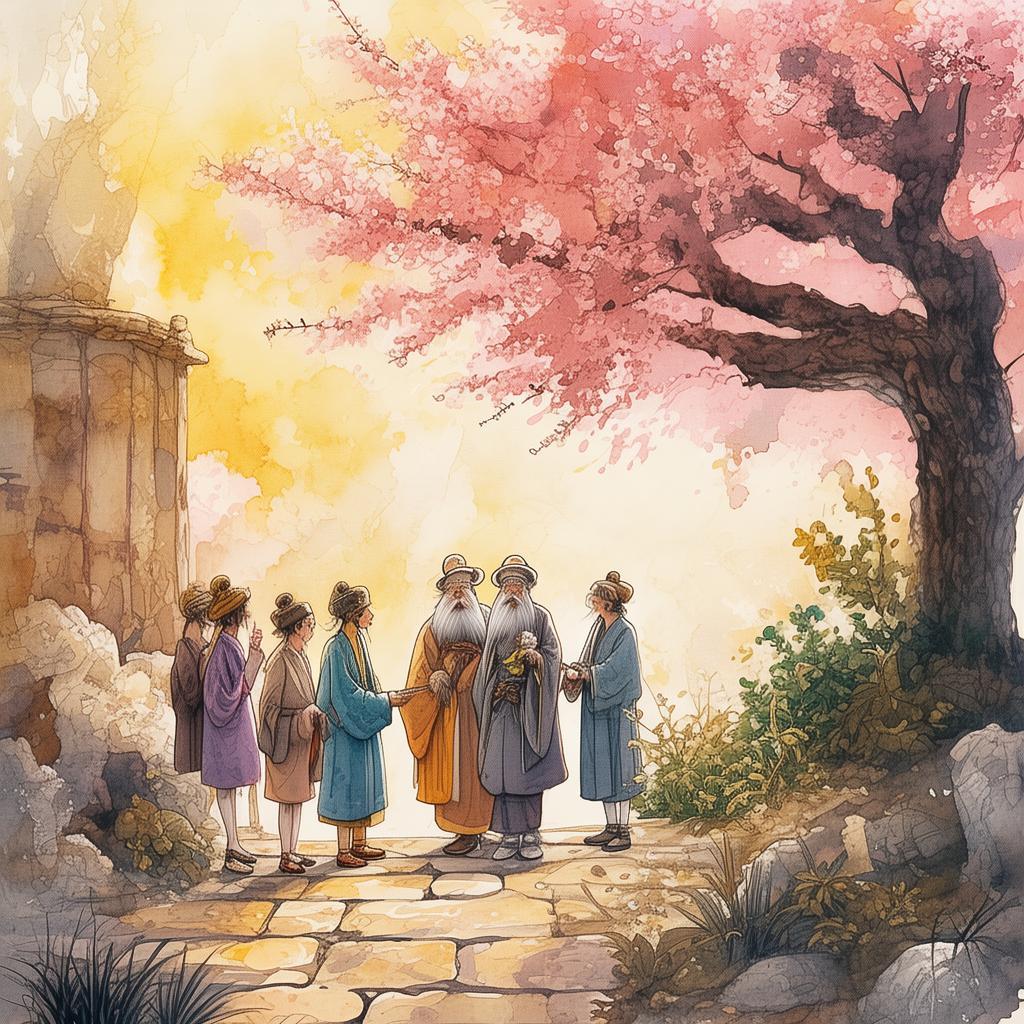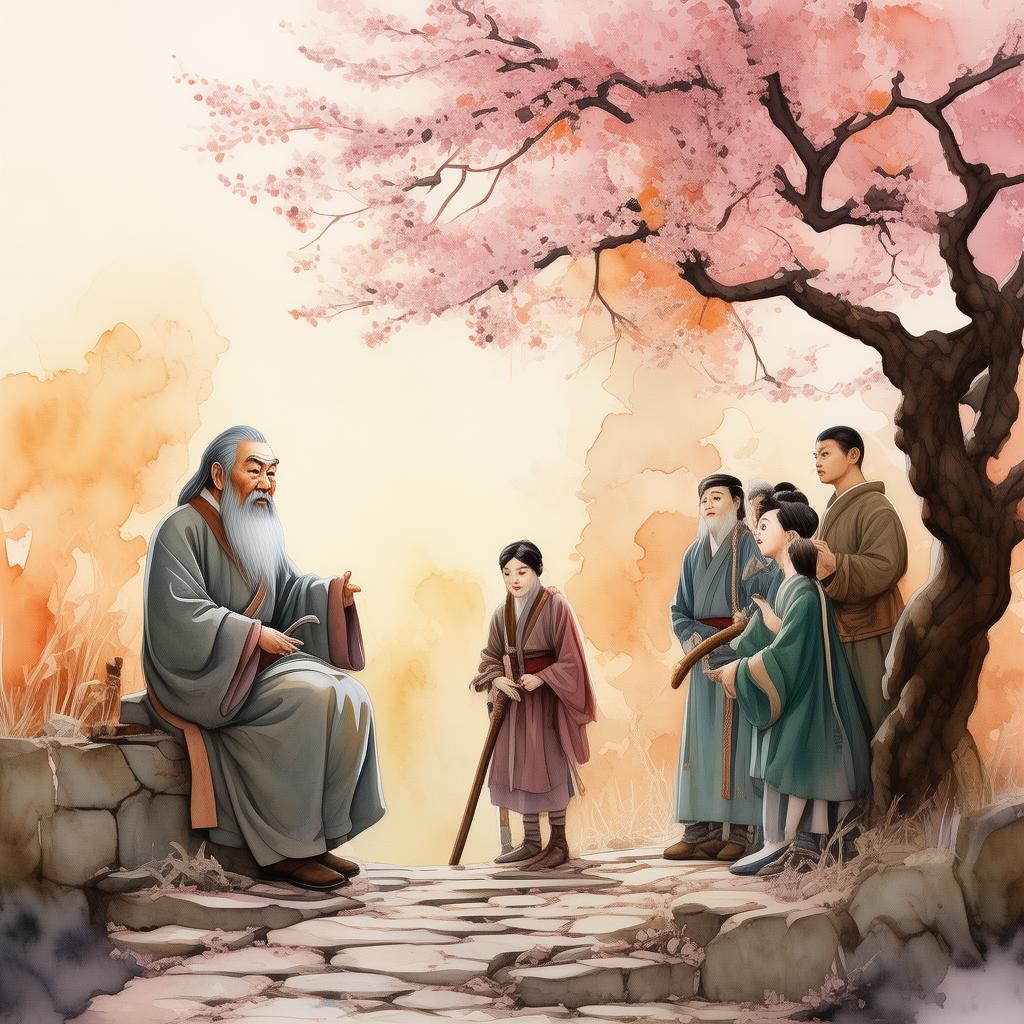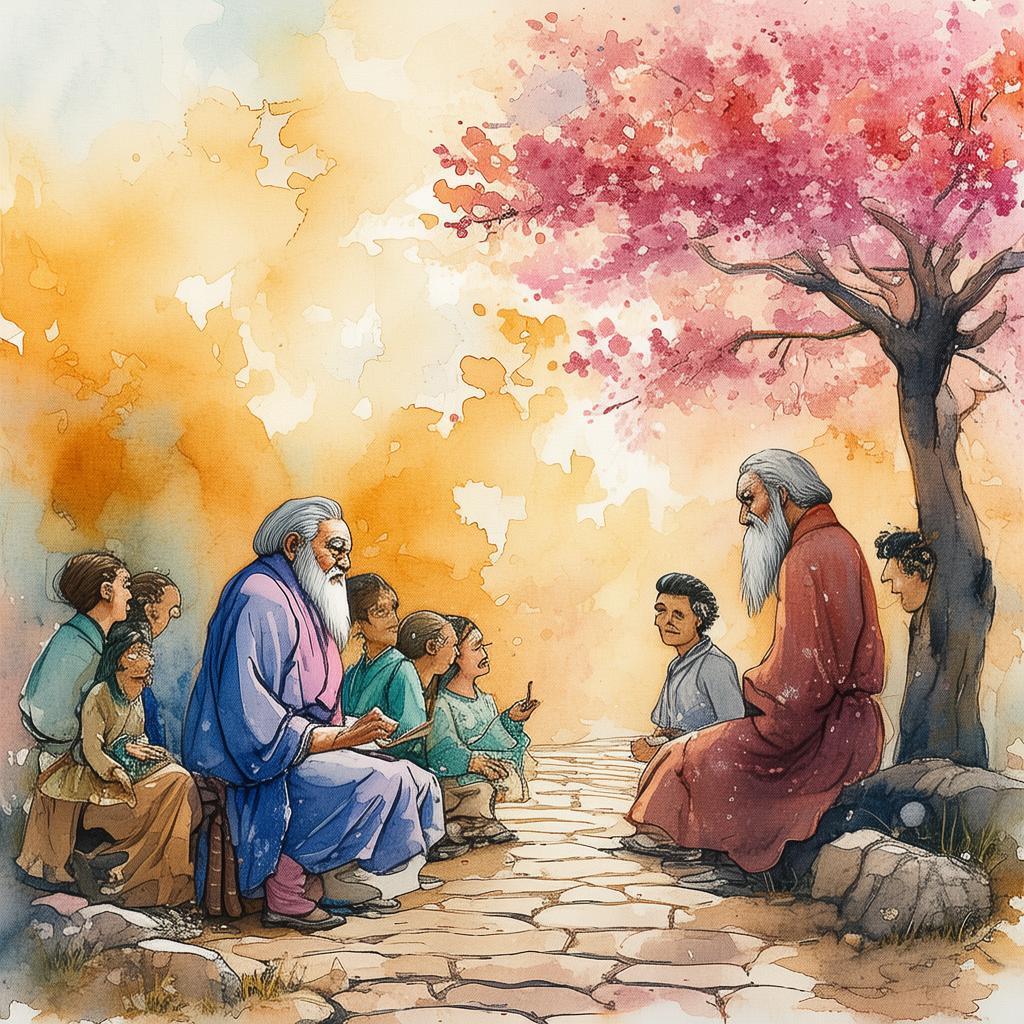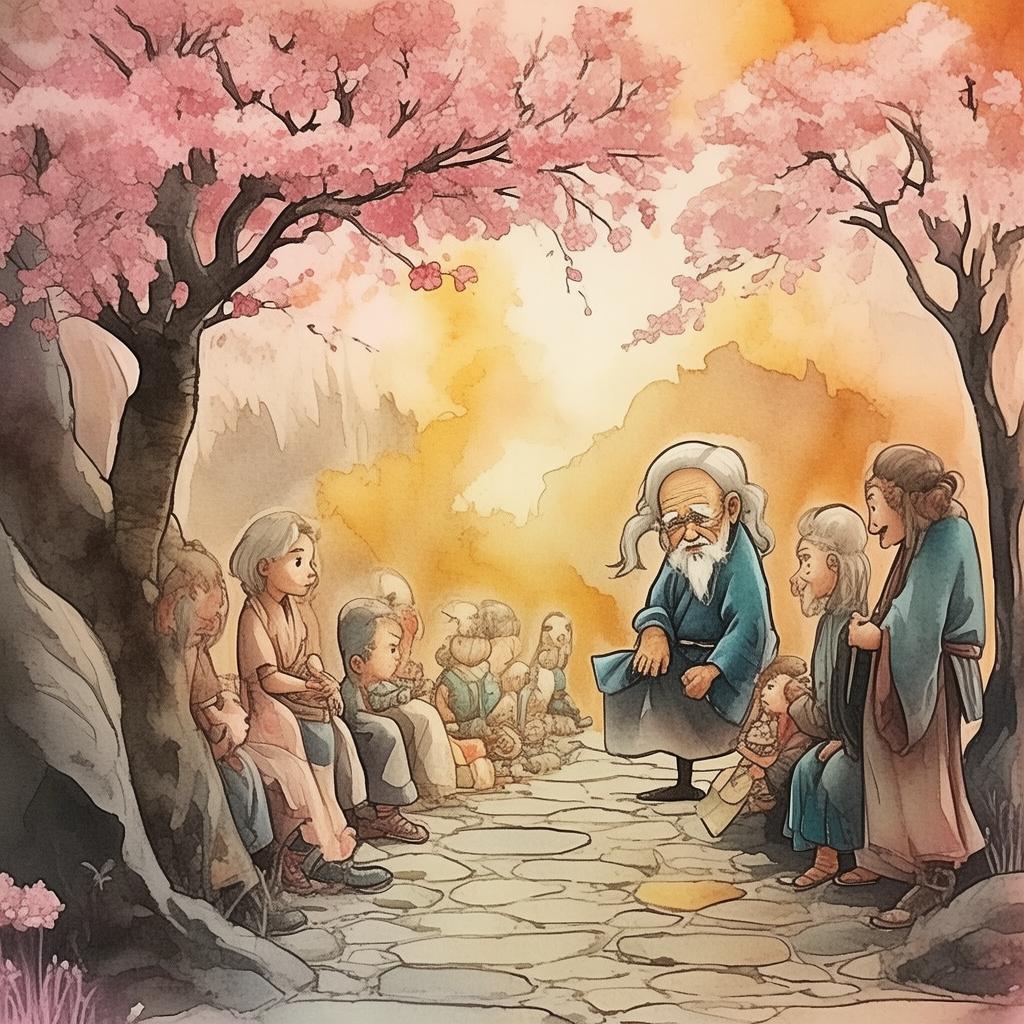The Pen That Bound Time
In the heart of ancient China, amidst the whispering bamboo groves of the Li River, there lived a man named Wang Xianzhi. Known far and wide for his unparalleled skill in calligraphy, he was the guardian of a secret that had been lost to the ages. His hands, deft and nimble, wielded the brush like a sword, painting the essence of life on paper with every stroke.
The art of calligraphy, to Wang Xianzhi, was not merely about the act of writing. It was a dance of the soul, a connection with the cosmos. But there was a time when the art had waned, and with it, the world had lost its vibrant colors. It was said that the true power of calligraphy lay in its ability to bind time, to reach beyond the confines of the present and touch the past and future.
One stormy night, as the wind howled and the rain lashed against the windows, Wang Xianzhi found himself at his desk, his inkstone brimming with the deep, indigo liquid that was his lifeblood. He dipped his brush into the ink and began to write, the strokes flowing with a life of their own. As the last character came to rest on the parchment, a blinding light enveloped him, and he was no longer in his study.
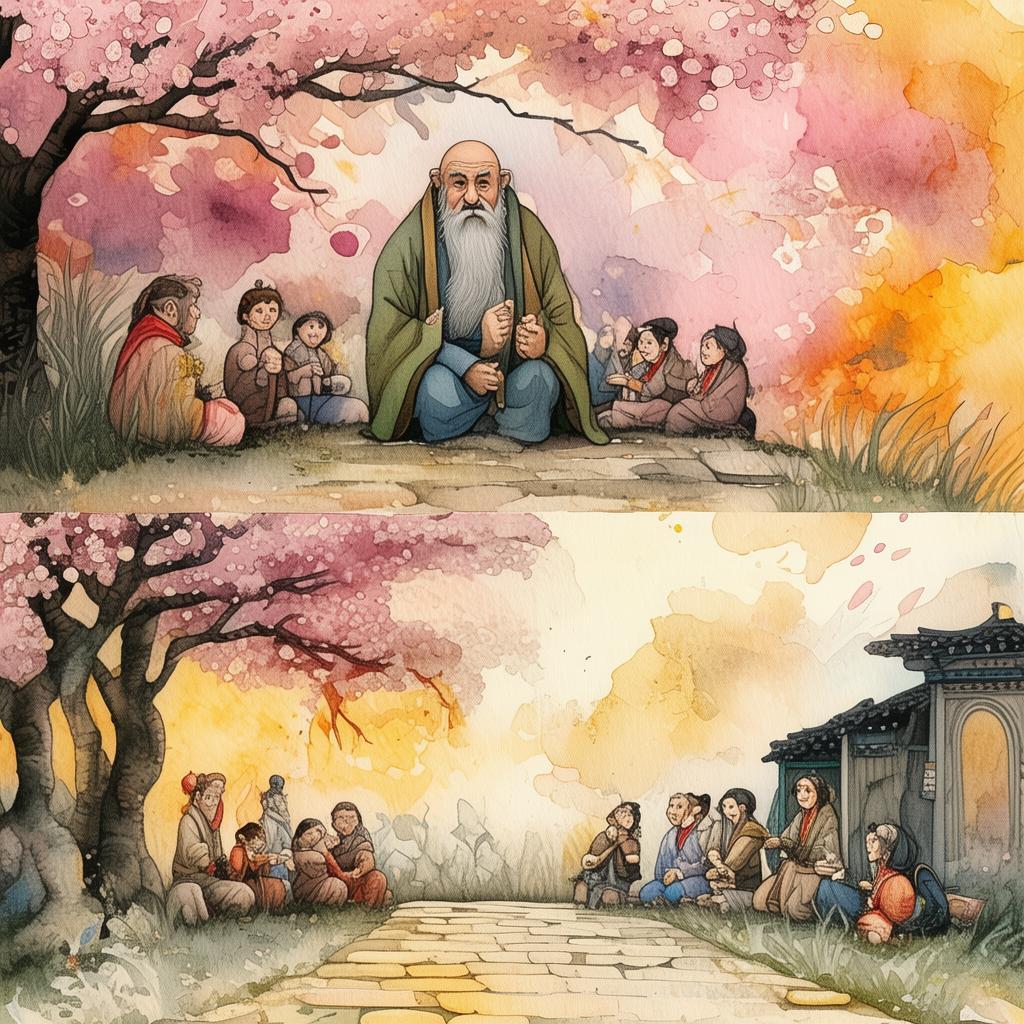
He found himself standing in an ancient court, the air thick with the scent of incense and the sound of distant music. The people around him were dressed in garments of a bygone era, their faces filled with awe and reverence. Wang Xianzhi, recognizing the significance of his presence, realized that he had been transported back in time to a period when the art of calligraphy was revered above all else.
As he wandered through the ancient streets, he saw calligraphers hunched over their scrolls, their fingers moving with a grace that belied the effort it took to produce such masterpieces. He marveled at the beauty of the art and knew that he had found his calling once more. He began to teach, sharing his knowledge with those who were eager to learn.
But as time passed, Wang Xianzhi noticed something strange. The world around him seemed to blur, as if the very fabric of time was unraveling. He realized that the power of his calligraphy had not only allowed him to travel through time but also to alter the course of history. Each character he wrote seemed to weave a thread through the tapestry of time, binding the past and future together.
One day, as he was writing a particularly intricate character, he felt a sudden jolt. He looked up to see a figure standing before him, an old man with a long, flowing beard. The man spoke in a voice that seemed to resonate with the very essence of the universe.
"You have touched the boundless well of time," the old man said. "But know this: with great power comes great responsibility. Your actions here will echo through the ages."
Wang Xianzhi nodded, understanding the gravity of his new role. He knew that he must use his gift wisely, to protect the fragile threads of time.
As the days turned into weeks, Wang Xianzhi became a guardian of the past, a silent observer of the future. He wrote, and the world around him responded, each character a step in the dance of time. And though he knew that one day he would return to his own time, he took solace in the knowledge that his art would live on, a testament to the boundless power of the human spirit.
And so, in the heart of ancient China, the art of calligraphy was reborn, its power rediscovered and bound to the very essence of time. Wang Xianzhi, the calligrapher who had bound time, had become a legend, his legacy an eternal testament to the magic of the pen.
✨ Original Statement ✨
All articles published on this website (including but not limited to text, images, videos, and other content) are original or authorized for reposting and are protected by relevant laws. Without the explicit written permission of this website, no individual or organization may copy, modify, repost, or use the content for commercial purposes.
If you need to quote or cooperate, please contact this site for authorization. We reserve the right to pursue legal responsibility for any unauthorized use.
Hereby declared.
